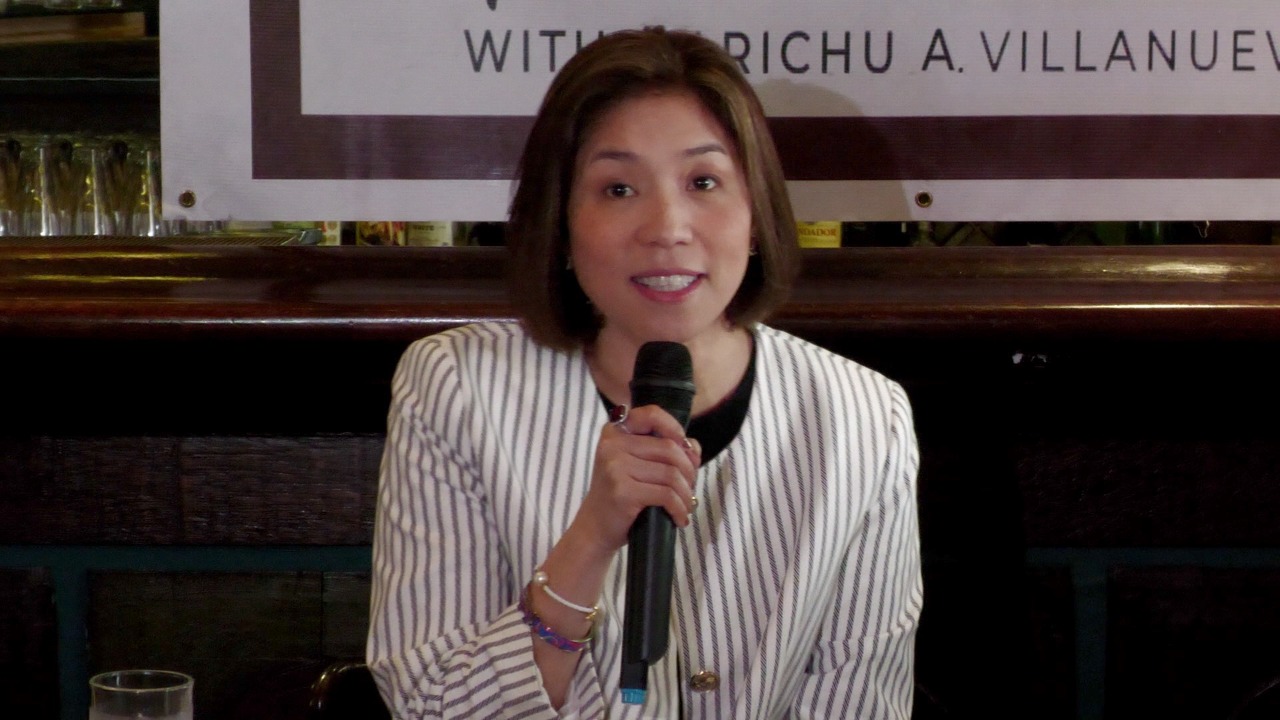
FILE PHOTO: Department of Budget and Management Secretary Amenah Pangandaman. INQUIRER.net/Ryan Leagogo
President Marcos on Wednesday said poor communities in the country would be at a disadvantage under former President Rodrigo Duterte’s full devolution order, prompting him to order a review of Executive Order (EO) No. 138, which directed the full devolution of certain functions of the national government to local government units by 2024.
The President told reporters in Taguig City that the additional internal revenue allotment (IRA) under the Mandanas ruling would not be enough for 4th, 5th, 6th class municipalities to fund their extra functions under the devolution order.
“The conclusion that we arrived at is that there should be no one-size-fits-all,” he said, adding that the government would reexamine Duterte’s devolution order.
“We will look into it to make it fair,” he further said.
Mr. Marcos said “functions that belong to the national government should belong, should stay with the national government.”
He said that while a fourth class municipality might receive an additional P1.5 or 1.7 million under the Supreme Court’s Mandanas ruling, it would still incur losses due to the additional functions given to them.
“Our worry is the 4th, 5th, 6th class communities, when you calculate what they will get as extra IRA against the extra functions that we are saying we will devolve, they will still lose,” he said.
“They’re in a poorer, financial condition than they were before the Mandanas-Garcia ruling, which is contrary to the spirit of the Mandanas-Garcia ruling,” he said.
Duterte signed EO No. 138, which directed the full devolution by 2024, in June 2021.
At a Palace briefing on Tuesday, Budget Secretary Amenah Pangandaman said the President had ordered government agencies to study possible revisions to Duterte’s full devolution order.
The order came after the President had a sectoral meeting with the Department of Budget and Management, the Department of Finance, the National Economic and Development Authority, the League of Municipalities of the Philippines and the League of Provinces Philippines in Malacañang.
“The President gave an instruction to further study the responsibilities, projects and programs that the LGUs can do and those that we will leave to the national government,” Pangandaman said.
At the start of the Marcos administration, many LGUs raised concerns on their inability to adapt to the full devolution order, particularly on big-ticket infrastructure projects, according to Pangandaman.
She said LGUs have different capacity levels in implementing projects, citing the lack of manpower and funds.
“I think a small water impounding system can be implemented by an LGU but I don’t think they can implement a big irrigation system project,” she said. “They lack the technical expertise and capacity to implement those projects,” she added.
She said the review of EO No. 138, to be headed by Socioeconomic Planning Secretary Arsenio Balisacan, could be finished in two months, adding that there would be no standard formula for all LGUs in terms of full devolution.
Pangandaman also said that it would also be possible to adjust the 2024 deadline of the full devolution, adding that about 450 LGUs were not yet ready for it.
In February this year, the President said he was “very seriously” reviewing Duterte’s devolution order because “there may be functions that are being given to the local [authorities] that are not meant to be given to [them].

